Beth Kephart's Blog, page 192
March 31, 2012
daybreak in the wake of insomnia
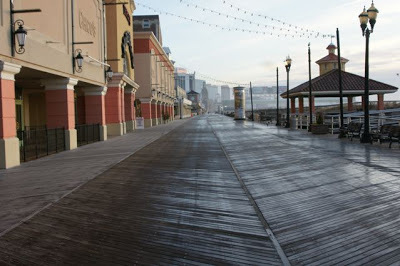
Two o'clock in the morning. Three. Four. Five. Still no sleep, and you wonder if you'll survive this newest bout of insomnia.
It's when daybreak comes and you look out, onto the horizon, that you see that you are not in fact alone.[image error]




Published on March 31, 2012 03:12
March 30, 2012
Going to "Memphis" (tomorrow)
My brother, knowing my passion for New York City and the musicals that rock its stages, asked me at Christmas what I'd like to see this year. After much research and thought, I chose the Tony Award-winning "Memphis," and I chose to see it not at Christmas, but on this first weekend of April.
"Memphis," then, will be how I ring in a new year. It will be how I don't work. How I don't think. How I allow a force quite larger than myself to entertain me.
To the Big Apple.
(And thank you, Jeff, for calling me right this instant, as I was about to press PUBLISH on this blog post.)




Published on March 30, 2012 18:33
celebrating Mike Cola, Shire President, as he steps toward a new future
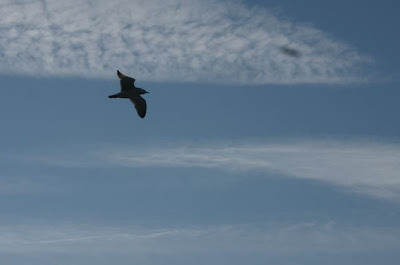
I don't often bring my business life onto this literary blog, but today has to be different. Today I wish to honor Mike Cola, with whom I have had the pleasure of working at various corporations for the past two decades. Since 2005, Mike has been at Shire, a company that has grown from one primarily dependent on a single product to one now serving patients all over the world with a wide range of central nervous system, gastrointestinal, and renal treatments—and a company (most importantly) with a burgeoning Specialty development pipeline, thanks in large part to Mike's innovative, questing, and (quite frankly) brilliant mind. Thanks, too, to the team Mike built.
When Shire announced Mike's resignation as president of the Specialty Pharma business yesterday, I thought back on the many conversations I have been privileged to have with this man. We had a formal excuse—the internal Shire publication that I write—and we would (with the guidance and impetus provided by Charlene McGrady) get the job done.
But when there was time to spare, there would be so much more—conversations about history (personal and global); conversations about science; conversations about the kids Mike would meet along the way in his capacity as basketball coach and quiet giver; conversations about the beach and birds; conversations about the wife and children he deeply cherishes; conversations about chickens, eggs, the resurrection of barns; conversations about books; conversations about his dad. I have consulted since I was twenty-five years old. I have met some special people. Mike Cola will always be, to me, one of those very special people. He cares about big things. He is prophetic. He changes companies and lives in ways both sweeping and small. He looks out across his desk and asks you how you're doing. He remembers (his memory is startling) every last thing you ever told him. He asks how your family is. He asks about the kids you teach and the books you want to write. He comes to your birthday party and he arrives at your house when (almost paralyzed by anxiety) you have invited him for a Dine In/Help Out meal.
Mike Cola is one of the great minds out there—a scientist, a leader, a deep reader and complex thinker, a farmer, a philanthropist, a father, a husband. He could be intimidating, if he wanted to be, but he's too interested in learning and doing more to crowd another out.
I will miss Mike greatly as I continue my travels throughout Shire. But most of all, I wish him happiness—more time with his beautiful wife and kids, with those eggs in that barn, with the birds along the shore, and with whatever great thing he will do next.
Things change. The world opens itself newly.




Published on March 30, 2012 03:36
March 29, 2012
In Those Years (remembering Adrienne Rich)
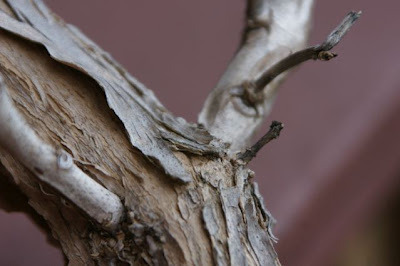
In Those Years
In those years, people will say, we lost track
of the meaning of we, of you
we found ourselves
reduced to I
and the whole thing became
silly, ironic, terrible:
we were trying to live a personal life
and yes, that was the only life
we could bear witness to
But the great dark birds of history screamed and plunged
into our personal weather
They were headed somewhere else but their beaks and pinions drove
along the shore, through the rags of fog
where we stood, saying I
— Adrienne Rich (1929 - 2012)




Published on March 29, 2012 06:41
March 28, 2012
I may be broken, or I may just be
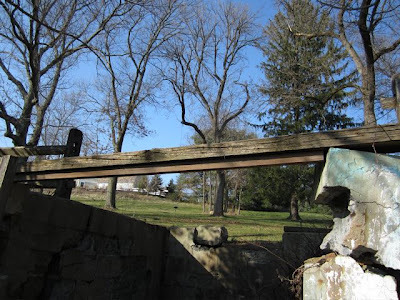
Analytical. So says one of my (beloved) clients, who gave me a little personality quiz over the phone today. After asking me five questions about myself, it was decided that I fall into the Analytical category (the other choices being Driver, Expressive, or Amiable).
The good news about being Analytical is that I am apparently organized, thorough, logical, prudent, accurate, and conscientious. (This may well be why my clients have been with me for years and years and years; I try hard not to let a one of them down.) I also (apparently) measure personal value by activity (as opposed to applause or attention, say), I want to save face, I avoid things when stressed, and I need details. I also (apparently) need to become more decisive. I don't know, though. I'm pretty durned decisive. And I haven't avoided anything in a really long while. In fact, I've lately been thinking that I should start avoiding at least some things if I want to lower my stress level.
In any case, aren't you glad I shared?
In any case (number two): I am really surprised and disappointed to learn that I am not an Expressive. Expressive people are the creative ones. They are also the ambitious ones. Durn again. I suspect the Expressives win the Big Lit prizes. I bet they ride the Best Seller lists straight into the sunset.




Published on March 28, 2012 16:40
Small Damages: a small scene

Sometimes the days get too busy, the demands too shrieking, the hours too full, and I forget: Small Damages is due out in July.
Today I was waiting (very early) for a client to call and he did not. I hurried and worried about it, sat at my desk with my mind fisty and tight, and then my thoughts went to another place, to the books that ease me back to a peaceful place, to this story.
I remembered this scene from Small Damages:
The first night after my father died, the wind started
howling and wouldn't stop. It banged the trash cans out into the street and
U-turned the limbs of the trees and scorched the canopy straight off the side
porch, and this was before my mother had found her talent for exerting her
power over things. So that she stood at one end of the house, and I stood at
the other until it was my father I heard in the wind, speaking to me and me
only. He howled and howled until he'd blown a tunnel through my heart, a black,
blank wilderness that rattles.
It was September of my senior year, and I had loved my
father best.




Published on March 28, 2012 05:19
March 27, 2012
Unschooled, unknown, I
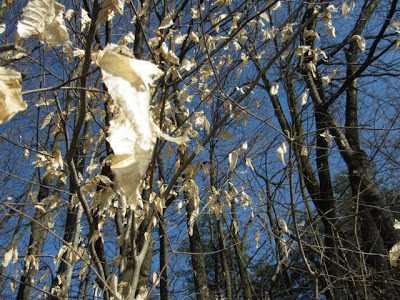
sent my literary work out into the world two decades ago. Would anyone listen? Would anyone care? I didn't know. I needed to find out. I waited for word.
Among those who sent word all those years ago was Susan Balee, who was the editor of a literary magazine called Northeast Corridor. Yes, she said, to a piece I wrote. It was one more lodging in.
Today—so many years gone by in the interim—I meet Susan down on the Penn campus. She is an associate professor at Temple now. I am what I am still trying to be. We will close the gap on nearly two decades and look forward at the work that moves us today.




Published on March 27, 2012 07:45
the real science behind the invisible cloak

A year or so ago, we sat among church friends and listened as Nader Engheta discussed his work in a field known as metamaterials, a discipline in which he is an acknowledged world leader. Maybe it was the glass of wine, but I thought I actually understood Nader that evening—thought I had climbed inside his world of physics and nanotechnology and gleaned something about the creation of the first actual invisible cloak. Just like Harry Potter, I thought. Relying on literature, once again, to see me through.
But today Nader, who is a professor at my very own University of Pennsylvania, is featured in a news story that reveals to me that, well, I understood nothing, and will never understand anything, about what this brilliant man is doing.
All I know is this: I'm proud to know him and happy to see him featured today. I excerpt three paragraphs from the Evan Lerner story, with the hope that you will find your way to the whole:
Just as a wave's shape determines its properties, the shape of
objects that a wave interacts with can further influence those
properties. By designing shapes with features that are smaller than a
given wavelength, metamaterials research could potentially develop
"super lenses," which have unprecedented magnification abilities, and
"cloaking devices," which can bend waves around an object, rendering it
effectively invisible.
Although it's been just a little more than a decade since the word
"metamaterials" was coined, Engheta is now taking the research to the
next level by establishing an even newer discipline he calls
"metatronics." Engheta and his research team recently built the first
physical metatronic circuit, which manipulates light waves much the same
way an electrical circuit in a computer or phone manipulates
electrons.
As if cloaking devices weren't futuristic enough, metatronics could
also lead to the creation of objects that do math when you shine light
on them. "What if we could make a material where we put a function in on
one end, and get its derivative or integral out on the other? We're
working on that," says Engheta.
[image error]




Published on March 27, 2012 05:51
March 26, 2012
For the record
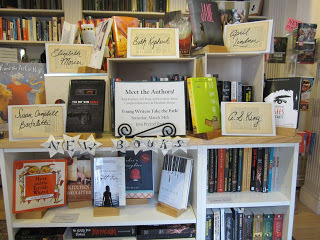

my camera was found.
This, then, is how it looked on Saturday inside the very cool indie, The Spiral Bookcase.
This is also how it looked as teen writers leaned forward, toward their stories.




Published on March 26, 2012 13:38
Lost & Found: Tin House Generously Remembers My Horace Kephart Essay
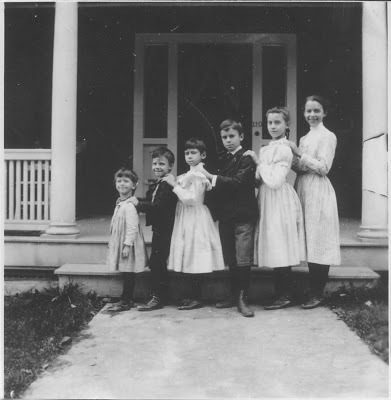
It was thrilling to hear from Emma Komlos-Hrobsky last week that my Lost & Found essay, originally published in the pages of that terrific literary magazine, Tin House, had been, well, found, and would be replayed on the Tin House blog today. I include the opening lines of the essay here. I hope you will follow the full trail here.
Beth Kephart brings us a tale of Appalachian wanderlust in this
Lost & Found on her great grandfather Horace Kephart's book, Our Southern Highlanders.
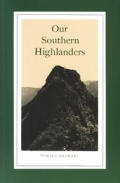 Growing
Growingup, we understood that we'd been entrusted with a name. "You go down
south to Bryson City and you say 'Kephart' and you let them tell you who
you are," our father's father would instruct us solemnly. My sister,
my brother, and I would sit in stiff obedience on his plastic-protected
chairs, watching each other beneath raised eyebrows. We might have had a
storied name, but we could not imagine how it mattered. We were
northerners and not soon headed for a town called Bryson City.[image error]




Published on March 26, 2012 07:13



